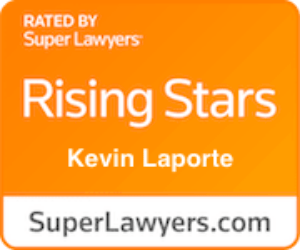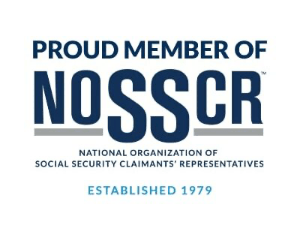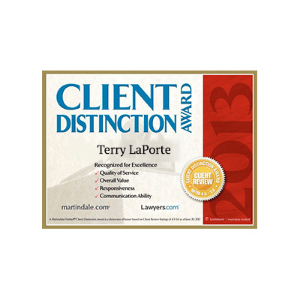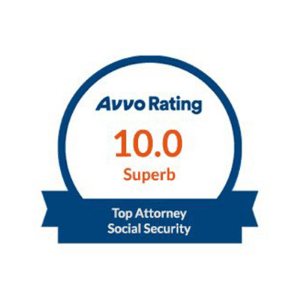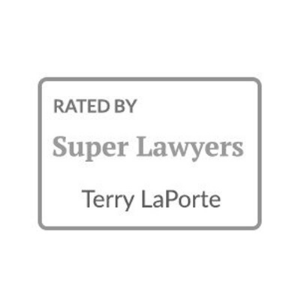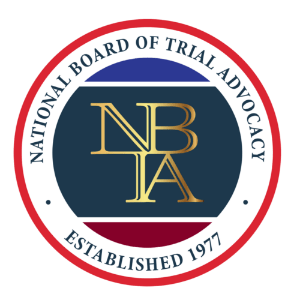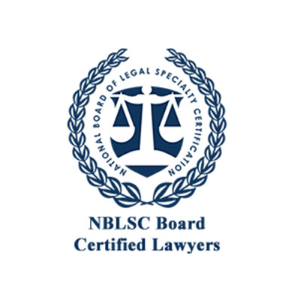The SSDI Podcast - EP3

- AUDIO TRANSCRIPT
0:00
All right, everyone get ready for another deep dive. Today. We’re going deep into Social Security, disability insurance and
0:06
supplemental security income. Yeah,
0:08
you know, SSDI and SSI, yeah. We want to tackle a question we get asked a lot. Can you get approved for disability before a hearing? Exactly, before a hearing. We’ve got this awesome article from the Laporte law firm,
0:22
real experts in navigating this whole complex process,
0:26
and it claims that lots of people actually do get approved
0:29
early. Yeah, that’s what’s so interesting. So
0:31
we’re gonna unravel this whole thing. We’re gonna try. Sounds good. All right, so the article says that lots of people think it’s super tough to get disability benefits, but that’s not always true,
0:41
right? And there are a few different steps to make sure it’s fair for everybody. Okay?
0:45
So the article talks about the usual process, starting with applying to the Social Security Administration, right? And then it goes to the Disability Determination service, DDS, for short, for a whole medical review, right? But this whole process, it can drag on, sometimes months or even a year. Yeah.
1:01
And while that’s going on, the DDS is looking really carefully at two things. Oh, okay. Like, what? First, do you actually medically qualify as disabled? Meaning, meaning, does your condition, you know, really limit your ability to work a full time job? Oh, okay. And second, they look at vocational stuff, vocational like, oh, yeah, like your age, education, what kind of work you’ve done before? Okay, so
1:27
they’re trying to figure out if there are any jobs you could still do, right? Exactly. So I guess even if you have a serious medical problem, you might not qualify automatically. If they think you could still work some kind of
1:39
job, yeah, it’s not just about, you know, can you do the job you had before? But, like, any kind of job at all, that
1:45
makes sense, okay? But here’s where it gets interesting, right? The article says that tons of people are actually approved before they ever get to a hearing. Yeah,
1:53
the numbers are kind of crazy. About 35% get approved right away with the first application, wow. And then another 15% get approved during the reconsideration. That’s like the first appeal. Oh, so that’s half the people getting benefits without a hearing.
2:07
That’s wild. What makes this application so special? Well,
2:11
the article says one big thing is the medical records. If your records really show how your disability affects your ability to
2:18
work, you’re more likely to be approved early on, makes sense, right? Yeah. So it’s not just about having a diagnosis, it’s about showing how it affects your life, exactly.
2:26
And another thing that can help is, if your condition is really serious or, you know, progressing quickly, okay, you might qualify for the compassionate allowances program that’s made for people with, like, the most serious conditions. So
2:42
it’s like a fast track, yeah, pretty much. Okay, that makes sense. Are there other conditions that are kind of easier for the DDS to look at?
2:50
Oh, yeah, for sure. So the SSA has this thing called the Blue Book. Blue Book, yeah, it’s a list of all the impairments that automatically qualify you for disability benefits. Oh, wow, if your condition meets the criteria they have in there, it’s way faster to get approved.
3:05
So the blue book is basically like a shortcut for certain conditions. You mean, right?
3:08
And even if you’re not in the blue book, having a really strong application is super important, okay, and that’s where the Laporte law firm comes in. Yeah, they’re all about working with a disability lawyer, because it can be so tricky. Yeah, it sounds like it having someone experience on your side can really make a difference totally.
3:25
Now I saw that the article also talks about the on the record request. OTR, yeah. OTR, what’s that all
3:32
about? Basically, you’re asking the judge to just decide based on your paperwork without a hearing. Yeah, no hearing. It’s good. If you have a strong case and you haven’t worked since you became disabled, exactly, they can make things a lot faster. Sounds good.
3:47
But what if they say no to the OTR,
3:49
then your case just goes to a regular hearing. So
3:53
it’s like a shortcut that might work, right? Not the only way to get approved, exactly,
3:58
just another option, all right?
4:00
So we’ve learned that the disability process can be complicated and take a while, but there are ways to get approved faster, and some things you can do to increase your chances definitely. Now let’s think about you, the listener. If you were going through this, what would you do first? That’s
4:16
a good question. What
4:17
questions would you want answered?
4:19
It’s important to really understand your situation. Okay, great.
4:22
We’ll dive into some more advice from the Laporte law firm in part two of this deep dive coming up after the break. Looking forward to it. See you there.
4:30
Welcome back. So we were talking about how to make a strong application. Let’s get into some tips from the Laporte law firm. All
4:38
right, let’s do it. They really emphasize having good medical records, but they also say you shouldn’t just send the SSA every medical record you have. Yeah, it’s more
4:47
about quality than quantity. Yeah, you want to focus on the stuff that’s relevant to your disability. Okay,
4:53
so like, the past year and a half, yeah, or since you became disabled, if it’s been longer, gotcha
4:57
so no need to dig up. That old x ray from when I broke my ankle in high school.
5:03
Uh huh. Exactly they need to see how things have been recently, you know, impacting your ability to work.
5:09
Okay? Makes sense. The article also talks about how important it is to keep track of your daily life and
5:14
how your disability affects you,
5:15
right? Like keeping a journal
5:17
exactly that can be really helpful. So
5:18
writing down things like, if you have trouble getting dressed or making meals, yeah, stuff
5:25
like that, even basic things around the house, because
5:29
it shows how your disability affects you every day, right? The more specific you are, the better. It kind of reminds me of those workplace evaluations where they like, watch every move you make to see if you’re straining yourself. Ah,
5:40
that’s a good point.
5:41
Like, we don’t realize how much we do until we can’t do it anymore. It’s
5:44
true. You gotta show how your disability actually limits you. Yeah,
5:48
okay. And the article also says work history is super important.
5:52
Oh, yeah. The DDS needs to know what kind of work you did before so they
5:56
can see if you could still do it now, right? So I shouldn’t just list my job titles? Nope,
6:01
you need to go into detail. Like, what did you actually do? How demanding was it? Physically, mentally, okay?
6:07
So like, if I was on my feet all day, or if I had to lift heavy things,
6:11
yeah, give them the whole picture. Even describe the environment you worked in, gotcha, so
6:15
they can see how my limitations now don’t match up with any kind of job I could do. Exactly, okay. And then another important point is keeping up with your medical treatment. Oh, that’s crucial, even if it’s hard to get to appointments. Yeah,
6:29
the SSA wants to see that you’re actively managing your condition. So
6:33
skipping appointments could hurt your case. It could, unfortunately, it’s like going to a job interview. You want to show them you’re serious. Good analogy.
6:41
And finally, the article brings up working with a disability lawyer again.
6:45
Yeah, they seem to really believe in that. It makes sense, though, this stuff can be really complicated. Definitely, having an expert on your side can’t hurt. It’s like
6:53
having a guide through a maze. You know? They know the way.
6:57
That’s a great way to put it all right. So we’ve talked about building a strong application. Now let’s look at some interesting stats about disability claims, like,
7:06
how many people actually get approved at different stages? Sounds
7:10
good. We’ll get into that after the Brock. Cool. See ya. Then we’re back and we’re diving into some really interesting numbers about disability claims.
7:20
Yeah, these stats can be really eye opening. So we know
7:22
that about 35% of people get approved right off the bat, right with the initial application. But what about the other 65% are they just out of luck?
7:31
Not necessarily. There’s this thing called reconsideration, which is basically like a first appeal. Oh, okay, and the article says a good chunk of people get approved during reconsideration, so
7:42
there’s still hope, even if you’re denied at first, exactly what are the chances of getting approved during reconsideration?
7:49
The article says about 15% so that’s like half the applicants getting benefits without even going to a hearing.
7:56
Wow, that’s amazing. But what if you get denied again, even after reconsideration, what then? Well,
8:01
then you can request a hearing with an administrative law judge.
8:04
Oh, okay, so that’s where you can really plead your case. Yeah, you can
8:08
present more evidence, testify, that kind of thing. And the article mentions a really interesting statistic about hearings, okay, I’m curious. Spell it. 51% of claims are approved at the hearing level. Wow,
8:20
more than half. So even though it’s tough to get through the first couple of steps, a lot of people end up winning their case at a hearing,
8:28
exactly. And that’s why the Laporte law firm keeps stressing the importance of persistence. You gotta keep fighting for what you deserve.
8:36
It’s a marathon, not a sprint.
8:38
That’s a good way to put it, and it kind of goes against what some people think about disability benefits.
8:43
You mean the idea that it’s almost impossible to get approved,
8:46
right? These statistics
8:48
show that lots of people do get approved, especially if they don’t give up.
8:52
Yeah, it’s not meant to be impossible. There are ways to make it work, definitely. Of course, these are just averages, right? Everyone’s situation is different. Some disabilities are more severe than others, and the evidence you have can make a big difference, and having a good lawyer on your side totally Yeah, but I think these statistics
9:08
are really helpful for understanding the big picture. They give you an idea of what to expect exactly. So as we wrap up, keep these numbers in mind. They might give you some hope, even if the process seems overwhelming.
9:21
Don’t forget, the Laporte law firms article goes into all of this in even more detail. So check it out if you want more info. It’s a great resource. Yeah, it’s super helpful. Well, that’s it for our deep dive into Social Security disability benefits. We’ve covered a lot. Today we talked about how to apply, how to get approved early, what kind of evidence you need, and how important it is to keep going, even if you face setbacks. We also
9:44
talked about some interesting stats that show you’re not alone in this process exactly,
9:48
and remember, there are resources out there to help you. If you’re thinking about applying for disability, don’t hesitate to reach out for guidance
9:56
and always advocate for yourself you deserve to get the. Benefits you need. Couldn’t have
10:01
said it better myself until next time, stay curious, keep learning and keep fighting for what’s right for you.
- Disclaimer: this podcast has been generated with the help of an Artificial Intelligence and is based on blog posts written by LaPorte Law Firm Disability expert attorneys. You can read all our latest blog posts here.

Helping clients win their cases for over 40 years
LaPorte Law Firm has been representing Social Security Disability claimants in the Bay Area since 1982. Since starting his practice specializing in Social Security Disability claims, Terry LaPorte has successfully represented thousands of disability claimants, with LaPorte Law Firm opening offices in San Jose, Oakland, San Francisco, Santa Cruz, Burlingame, Sacramento, and Hawaii.
We are a full-service law firm providing expert legal representation at all stages of the Social Security Disability benefits process. As a local law firm mainly servicing the Bay Area, we are familiar with the administrative judges at the San Jose, San Francisco, and Oakland hearing offices, as well as the staff at local Social Security field and hearing offices. In addition, with this being a federal area of law, we also represent clients all over the country.
Meet our attorneys
Our team of ethical, professional, and dedicated lawyers are the cornerstone of our success.

Terry LaPorte
Attorney

Kevin LaPorte
Attorney
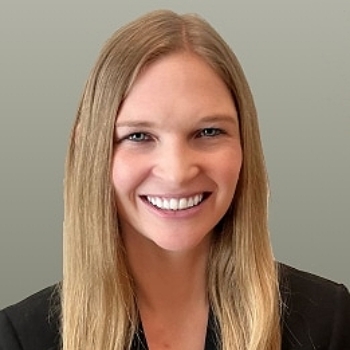
Kelsey LaPorte
Attorney
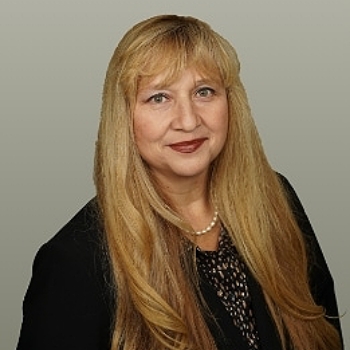
Maria Miranda-Hammon
Legal Representative
How it works:
- Complete the form so we can learn more about your situation.
- We will reach out within 48 hours to schedule your free, no-obligation consultation with an attorney.
- If your case can be pursued, we’ll start working on it.
- We only get paid if your case is approved.
How we can help:
- Free case evaluation by an attorney
- Social Security Disability Insurance application
- Social Security Disability Insurance appeal
- Disability hearing preparation
NO FEES UNLESS YOU WIN.
Award-winning service
Equipped with years of experience and thousands of successful cases, LaPorte Law Firm is the leading disability attorney in the Bay Area, and we have the awards and certifications to prove it.
